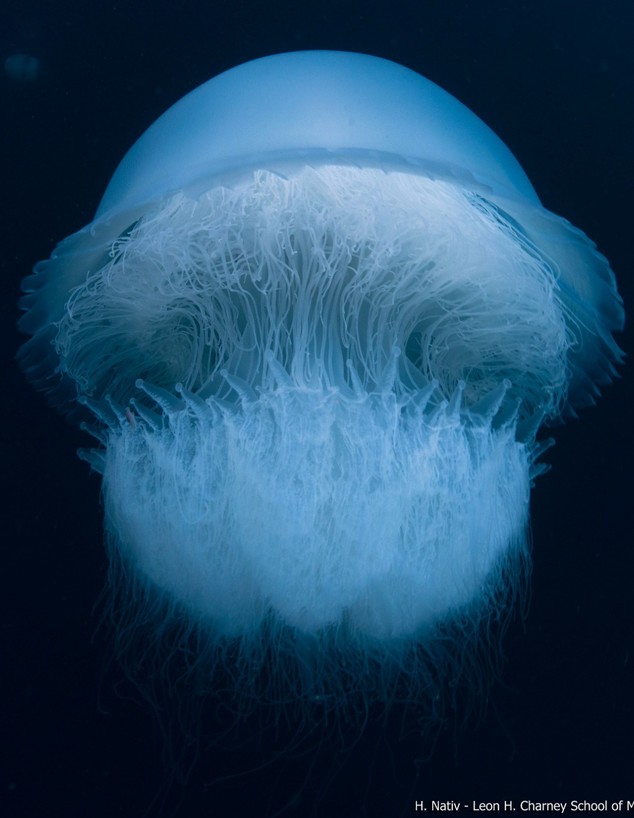A new study headed by Dr. Z. Kuplik, Dr. D. Kerem, and Prof. D. Angel, on the Rhopilema nomadica Jellyfish, has been featured on the N12 news site (in Hebrew). The study, titled “Respiration Rates, Metabolic Demands and Feeding of Ephyrae and Young Medusae of the Rhizostome Rhopilema nomadica” has been published in the journal ‘Diversity’.
Jellyfish (cnidarians and ctenophores) affect the marine food web through high feeding rates and feeding efficiency, but in contrast to their great importance in the ecosystem, our knowledge of their dietary requirements is limited. Here we present the results of respiratory and feeding trials of the rhizostome Rhopilema nomadica, the dominant scyphozoan in the waters of the Eastern Mediterranean, which often establishes massive swarms, mainly in the summer months. Through multiple measurements of oxygen demand in R. nomadica at bell diameters of 3–49 mm, we were able to assess its minimum energetic requirements. These, and the results of the feeding trials on individuals of the same bell diameter range, show that R. nomadica is a very efficient predator. When presented with prey concentrations of 100 prey items per liter, a single hourly feeding session provided between 1.15 and 3 times the estimated daily basal carbon requirement. Our findings suggest that R. nomadica is well adapted to its environment, the hyperoligotrophic waters of the eastern Mediterranean, able to efficiently exploit patches of plankton, possibly at rates even higher than what we observed under laboratory conditions.
Read the full paper here.


